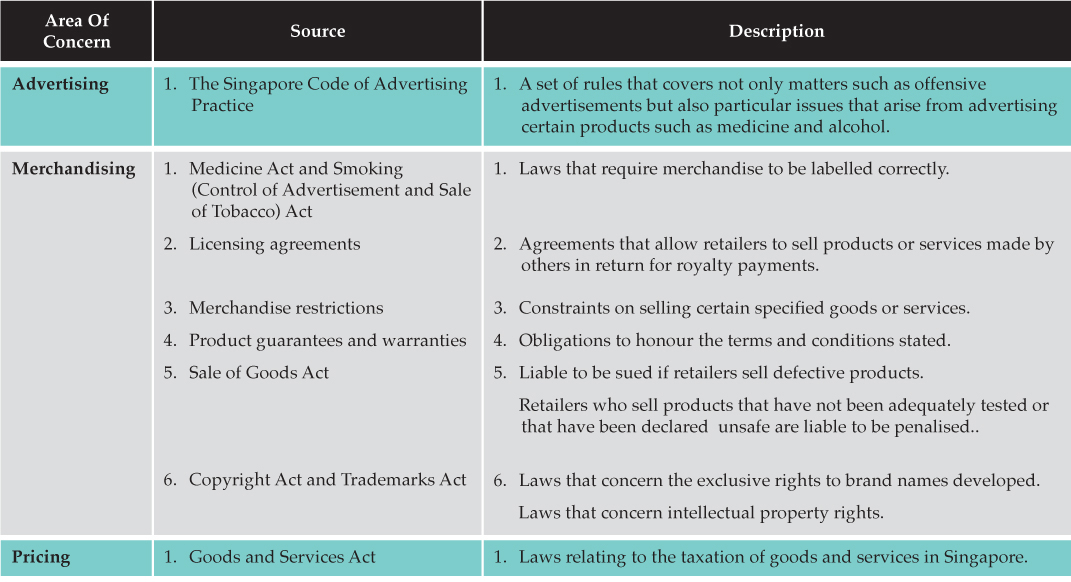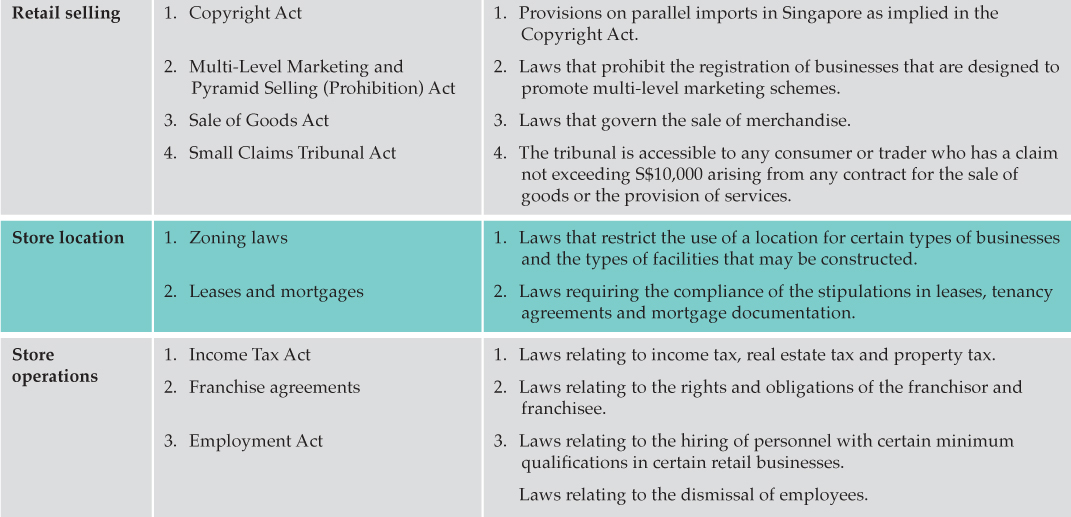Chapter 14. Responsible Retailing

In today’s retailing environment, a retailer must concentrate not just on selling but also on being aware of some vital duties fundamental to successful retailing. This chapter highlights three important issues.
Ethical Issues
In any customer-oriented business.
Professionalism, efficiency, speed and reliability are vital elements.
Thus it will be useful if the retailer is aware of some general retail practices which may or may not have legal implications. These practices will serve to enhance Singapore’s reputation as a shoppers’ paradise.
Here are some points to ponder on:
An ethical retailer should:
1. Display and disclose all relevant information on the price tags
2. Mark merchandise prices in Singapore currency
3. Sell merchandise at reasonable prices
4. Issue receipts for all merchandise sold
5. Provide good sales and after-sales service
6. Respond promptly to all customer complaints
7. Ensure that all employees are informed of the merchandise and store policies.
An ethical retailer should not:
1. Sell any counterfeit merchandise
2. Misrepresent any information relating to the merchandise
3. Engage touts to promote the business
4. Impose a surcharge on the use of charge or credit cards
Legal Issues
The proliferation of consumer protection, under civil and criminal law, implies that it is in the interest of all retailers to be knowledgeable about the law as it affects them in their daily dealings with customers. This section aims to give retailers some awareness of the current legal environment affecting retail operations.

The Consumer Protection (Fair Trading) Act
With the introduction of the Consumer Protection (Fair Trading) Act, consumers will be able to sue for monetary compensation by simply showing that the traders have committed dishonest practices. The Second Schedule of the Act specifies 20 unfair practices.
Generally, these unfair practices cover three main areas of trade:
1. False or misleading advertising such as:
• Hiding or lying about important product information
• Trying to attract shoppers by promoting an offer that the traders know they cannot deliver
• Using small print to conceal a material fact from the customer

2. False bargains such as:
• Lying about the duration of a promotion or a sale
• Putting up ‘closing down sale’ signs when the trader has no intention to end the business
• Raising the prices of merchandise just before a sale
3. Unethical sales practices such as:
• Harassing or pressuring people to buy a product
• Withdrawing free gifts that have been promised prior to the purchase
• Including in a consumer agreement, terms or conditions that are harsh or excessively one-sided
It is clear from the above mentioned that the trader should provide the consumer with all relevant information so as not to mislead the consumer. The consumer can then make an informed decision. As such, the trader should begin reviewing his business practices, particularly the type of information to provide or convey to the consumers.
However, consumers will not be the only ones to benefit. By marking out the minimum standards of business practices, the traders will also benefit. The Act protects traders from unreasonable consumers and unscrupulous competitors.
It is important to note that the Act covers all consumer goods and services with the exception of some transactions:
• Financial investments
• Purchase and sale of property
• Transactions with value that exceeds S$20,000
A full copy of the Consumer Protection (Fair Trading) Act may be downloaded from the Internet at www.mti.gov.sg.




